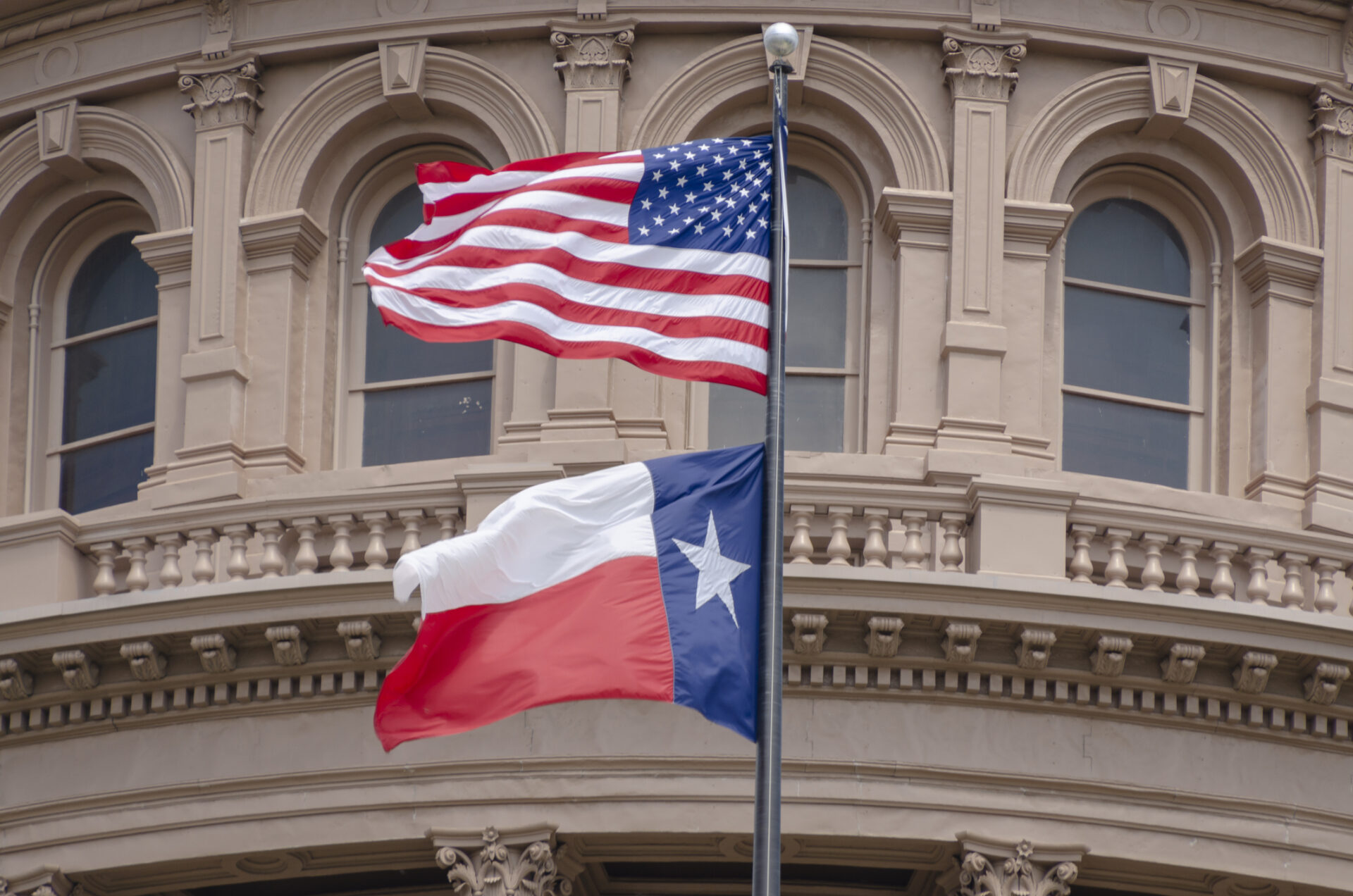The TCPA is the federal law of the land, but it’s not the only law callers should consider in their compliance journeys. We have discussed the mini-TCPAs of Florida, Maryland, and Oklahoma in other pieces.
In this article, we will discuss Texas’ version, which has new amendments that take effect on September 1, 2025. These new amendments sharpen the teeth of Texas’ mini-TCPA, which expands its registration requirement to apply to both telephone calls and text messages.
Learn below about the new amendments and what you need to know to stay compliant.
What is Texas’ Mini-TCPA?
Texas’ mini-TCPA is one of the more complex state mini-TCPAs because it is spread across multiple statutes within Chapters 301–305 of the Texas Business & Commerce Code. Here we discuss Chapters 301, 302, 304, and 305 (Chapter 303 concerns calls concerning law enforcement-related charitable organizations).
Chapter 301: Making Consumer Telephone Calls
Chapter 301 requires callers to follow specific rules when making consumer telephone calls, which are defined as unsolicited calls made to:
- solicit a sale of a consumer good or service;
- solicit an extension of credit for a consumer good or service, or;
- obtain info that will or may be used to directly solicit a sale of a consumer good or service, or to extend credit for the sale to residential telephone numbers.
For these kind of calls, the following rules apply:
- Only call between 9AM and 9PM on weekdays or Saturdays, or between 12PM and 9PM on Sundays.
- Immediately provide certain identification and call-purpose disclosures.
- If the caller uses an autodialer (as defined by Texas’ mini-TCPA), the autodialer must disconnect the called party’s line within 5 seconds after the call ends.
Those requirements do not apply to consumer telephone calls made (1) at the called party’s request, (2) in connection with an existing debt or contract where payment or performance is incomplete, or (3) pursuant to a current or prior business relationship between the caller and called party.
Texas’ mini-TCPA defines “autodialer” (called an automated dial announcing device) as:
“Automated equipment used for telephone solicitation or collection that can:
- (A) store telephone numbers to be called or produce numbers to be called through use of a random or sequential number generator, and;
- (B) convey, alone or in conjunction with other equipment, a prerecorded or synthesized voice message to the number called without the use of a live operator.”
TCPA Autodialer Definition vs. Texas’ Mini-TCPA Autodialer Definition
Texas’ mini-TCPA autodialer definition is similar to the TCPA’s autodialer definition, except the TCPA’s definition does not require the autodialer to be able to convey a prerecorded or synthesized voice message in order to fit the definition.
There is a private right of action (i.e., a right to sue) for Chapter 301 violations. However, unlike the TCPA, a consumer’s damages are limited to actual damages (as opposed to statutory damages), but a prevailing consumer can recover his or her reasonable attorney’s fees and costs.
Chapter 302: Sales Call Registration Certificate
Chapter 302 regulates sales calls (called “telephone solicitations”) made from and to Texas. Under that chapter, a seller that makes sales calls from or to Texas must have a registration certificate for each business location it makes sales calls from (the applicable definition of seller is “a person who makes a [sales call] on [their own] behalf.”).
But there are many exemptions to that registration-certificate requirement, such as an entity soliciting former or current customers.
There is a private right of action for Chapter 302 violations and a prevailing consumer can be awarded up to $5,000 per violation, as well as reasonable attorney’s fees and costs.
There is an ongoing debate as to whether an entity failing to register constitutes as a single violation, or if each call the entity makes constitutes as its own violation. If the latter interpretation is correct, then Chapter 302 is one of the most high-risk telemarketing laws in the United States.
Chapter 304: Texas’ Do Not Call (DNC) List
Chapter 304 applies to telephone calls, SMS, and MMS, and prohibits telemarketers from making unsolicited sales calls to telephone numbers on Texas’ no-call list. That prohibition also applies to calls made to obtain information that may be used for solicitation purposes.
But there are certain types of sales calls it does not apply to, such as:
- Calls made pursuant to an established business relationship;
- B2B calls, unless the called business previously made a do-not-call request, and;
- Calls made to collect a debt.
There is a private right of action for consumers if they receive two or more sales calls that violate Chapter 304. A court can award up to $500 per violation if it finds the defendant willfully or knowingly violated Chapter 304.
(Under the NDNCR portion of the TCPA, a consumer can recover up to $500 per violation, which the court can increase up to $1,500 per violation if it finds the defendant willfully or knowingly violated the relevant regulation).
But before bringing a lawsuit, a consumer must first:
- Notify the caller of the alleged violation, and;
- Within 30 days of the call, file a complaint regarding the alleged violation with the commission, attorney general, or relevant state agency. After that, the consumer can only file the lawsuit if the commission, attorney general, or relevant state agency does not initiate an administrative or civil enforcement action within 121 days.
Chapter 305: Autodialer Rules
Chapter 305 prohibits making sales calls, including sales calls made with an autodialer (as defined by the Texas mini-TCPA):
- Without the called party’s consent (including consent to use an autodialer) and;
- The caller knows or should have known that the called party’s number is a cellphone number for which he or she is charged for the call.
Chapter 305 provides consumers with a private right of action if they receive a call that is in violation of Chapter 305 or the TCPA. A prevailing consumer is entitled to $500 per violation, which the court can increase up to $1,500 per violation if it finds the defendant knowingly or intentionally committed the violation.
What Are The New Amendments?
The amendments that go into effect on September 1, 2025 apply to Chapters 302, 304 and 305. The following are important amendments to be aware of.
Applicable Only to Chapter 302: New SMS & MMS Regulations
Chapter 302’s definition of “telephone solicitation” is amended to now apply to SMS and MMS. Thus, as of September 1, 2025, sellers that send sales text messages to or from Texas must obtain a registration certificate for each business location from which it sends sales text messages to or from Texas, unless (1) it is subject to one of the applicable exemptions or (2) already has the necessary registration certificate(s).
Applicable to Chapters 302, 304 and 305: Clarifying Repeat Litigations
Chapters 302, 304 and 305 are all amended to clarify that a consumer’s previous recovery for violations of these chapters will not bar the consumer from recovering in future actions for other violations of these chapters. Unfortunately, this change may motivate consumers to be repeat litigants.
Applicable to Chapters 304 and 305: Pursuing DTPCPA Claims
Both Chapters 304 and 305 are being amended to classify a violation of either chapter as a false, misleading, or deceptive act or practice. The amendments will also provide a private right of action to consumers for a violation of either chapter under Texas’ Deceptive Trade Practices-Consumer Protection Act (DTPCPA).
This is an important change for Chapter 304. Currently, a private right of action for a violation of Chapter 304 can only be brought after the consumer takes certain required actions. But as of September 1, 2025, it appears that a consumer can bypass those steps by instead bringing a claim under the DTPCPA for a violation of Chapter 304.
In a case brought under the DTPCPA, a consumer is entitled to economic damages. If the defendant’s conduct was committed knowingly or intentionally, the court may award the consumer up to three times the economic damages, as well as damages for mental anguish. A prevailing consumer is also entitled to reasonable attorney’s fees and costs.
The Bottom Line
Texas’ mini-TCPA was already one of the most high-risk mini-TCPAs for businesses in the United States. Now, with the new amendments, the risk is even higher.
Any business that makes calls within Texas must be aware of the new amendments and ensure they implement any necessary changes to their operations before the effective date, September 1, 2025.
This article is only offered for informational purposes; it is not legal advice. Please consult a qualified attorney for your specific compliance needs.
Joe Bowser
Joe Bowser is a partner at Roth Jackson. He has been practicing communications and marketing law for two decades. He advises and defends calling and SMS platform providers (like Readymode), carriers/VoIP providers, and heavy users of those services in their wide range of compliance needs. In his spare time, you can find him taking his boys to their sports, getting in a workout of his own, or catching an Arsenal match.






